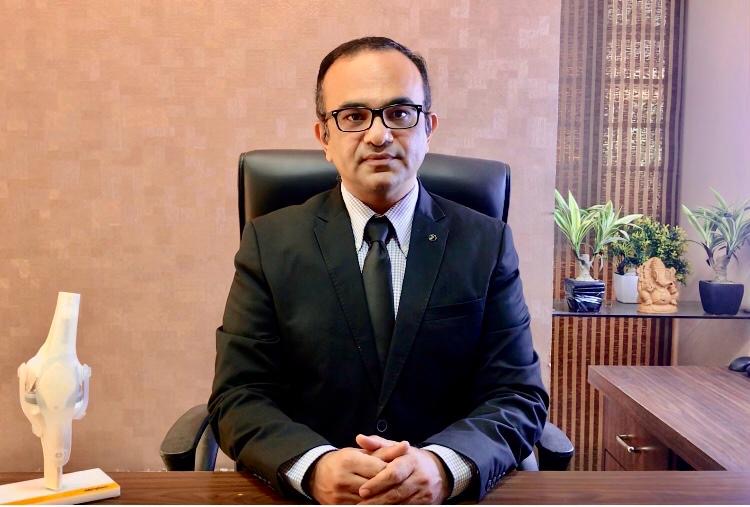I apologize for the wait to get this part out of the interview. As school starts up, things get hectic, but I am planning on trying to post regularly. This is the end of the interview with Dr. Ketan Shah, and he closed with some riveting takes on the world of medicine. Enjoy!
So, following up on this point, how do you believe Western treatment could improve by adopting Indian practice?
A lot, 100%, there is no question.
How in the sense, principally how?
Principally is a little difficult, because all these are like, you know, established things, which are so very difficult to change, and I would not rate myself as the best person to give you this answer, but seriously, I am the best person to give you this answer because I have seen both the counterparts.
I have worked with both counterparts.
I always feel that they (the west) are broader, their mindsets and everything is completely different.
So if somebody would ask how can we adapt to them-India adapt to them-is still a marginally possible chance for me because the areas that they excel in are non-human, so as to say.
So if I have 100 crores, I can make the same hospital as in the U.S. I can bring in the same instruments.
So infrastructure is possible for India, but the same, like, you know, the gray zones of, say, the U.S. medical system, if you compare it with any of the Asian countries, is much bigger. I visit Seoul, South Korea as a professor. So even in Seoul, there is a huge quantum. Asian countries are essentially crowded. You get that exposure. Everything is in magnitude. I could get 55 cases of fever in one day.
For med students, that (the exposure) is a compulsion. Because you have to attend.
And if you don’t attend, you don’t go for the exam. From 9 o’clock to 1 o’clock, you are doing one thing every day. The amount of cases med students here see is in no way possible in the US. So, taking something there is not possible.
Secondly, they say that their strengths are their strengths. There is a weakness in that. Infrastructure is a strength. Technology is strength. Inventory is strength. So they are upgraded or they are at strength in so many zones. They will not degrade to what they believe is a lower practice. Their gray zones are not going to go because that system is so very complex now.
They also have a system set in place. Whosoever it is, they have to go through a system. You cannot see a consultant straight away. You will have to go through your GP. So it is a system. You just cannot go to a radiology workplace and say that I need a CT scan or I need an x-ray. It is just not possible.
Here you can get an X-Ray or a CT scan even without my prescription. If you want to do a CT scan, fine.
So that is not something which is possible in the US.
As I said, I would still see that this question can be a little reformed in what we can or what we should take from them. What we should take from the US is something which is a very serious point.
Do you think India could learn from the West from an infrastructure and technology standpoint?
Exactly. System and documentation I would say. We are a country which is very poor in documentation. The amount of work that we do doesn’t go in the textbook. If you just scribble the number of textbooks that are written by Indian doctors or scientists, it’s not even 10%. Whereas, they are only doing 10% of the work we are doing. When it comes to putting down on paper, when it comes to documentation, we are so very poor. As I said, I have done around 10,000 cases, but I have not done documents.
Manpower obviously, even though it is an overcrowded and overly populated country. We are always short of manpower. Those helping hands and things like that.
So maybe that is something which we need to learn from them.
You said the system there consists of a hierarchy in hospitals. There is a general practitioner, and then a specialist, versus going straight to a specialist here. Do you think it would benefit specialists to make such a system here? Do you think they should make a system with just specialists?
They should make such a system. In times of crisis, it is much easier to find treatment here, whereas there you have to go through so many more steps.
But, many times, the patient is coming to me, but in reality it is a waste of my time and energy and resources and whatsoever. If a general practitioner has a strong pull, then they can be of a very good help to filter out cases. Like here, if I have to go to attend some camps or see some peripheral patients, I see so many patients who would not definitely require our services. They would have been jolly well treated by the general practitioner.
And here it’s like, you know, because we are easily accessible, it’s like, you know, even if somebody would have a cough or sneeze, they see the super specialist number 1000.
But we are changing a little here. We have assistants, subordinates, to help us. So that is very systematically coming up in India as well, wherein it’s not exactly the general practitioner, but then we have our subordinates. If I didn’t have them, I couldn’t have given this interview right now. I would be up to my eyes in patients. But my subordinates can weed out the cases for me. So that is gradually coming up in India, but it is not as systematic or as rigid as you have it in the US.
